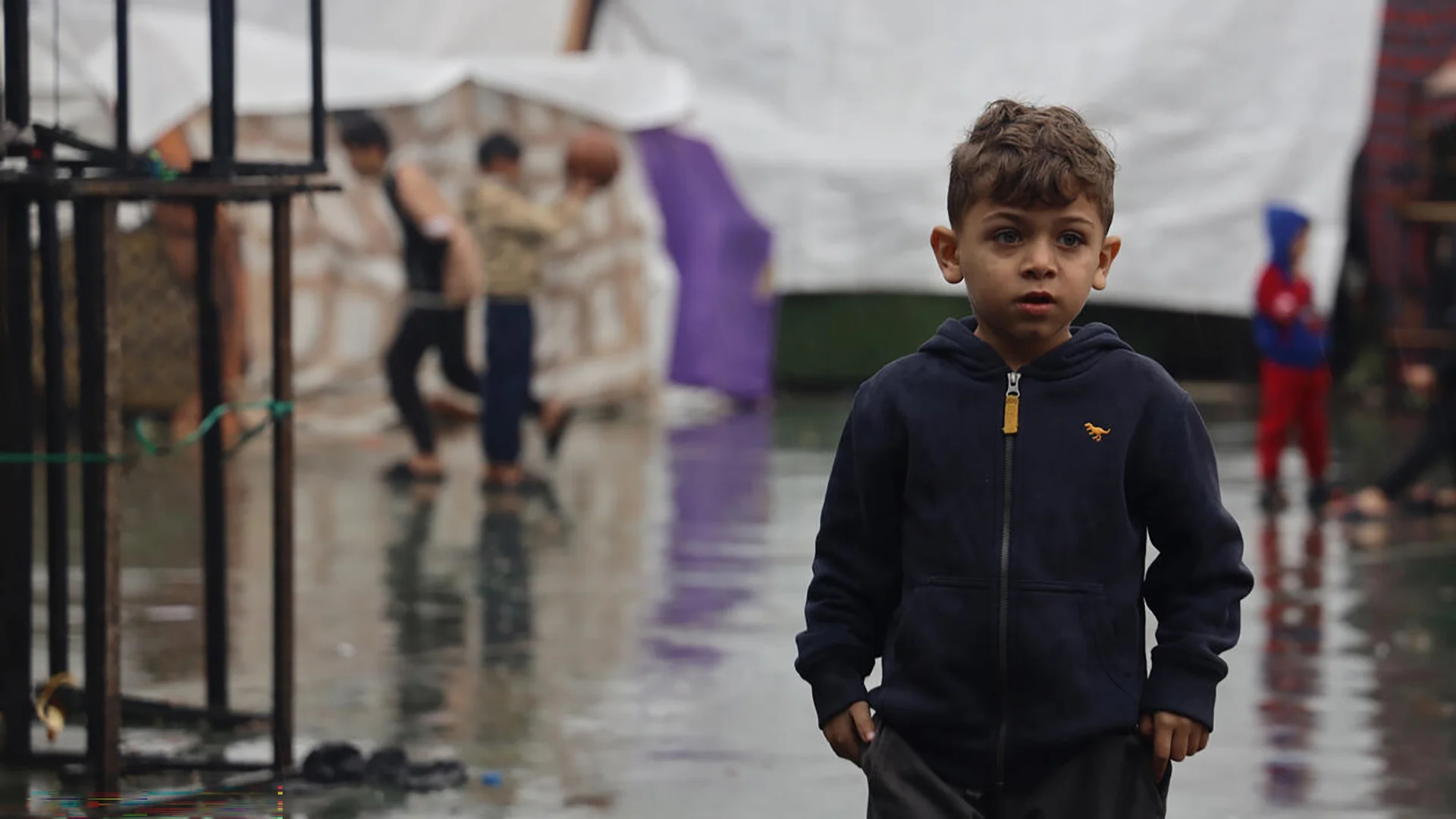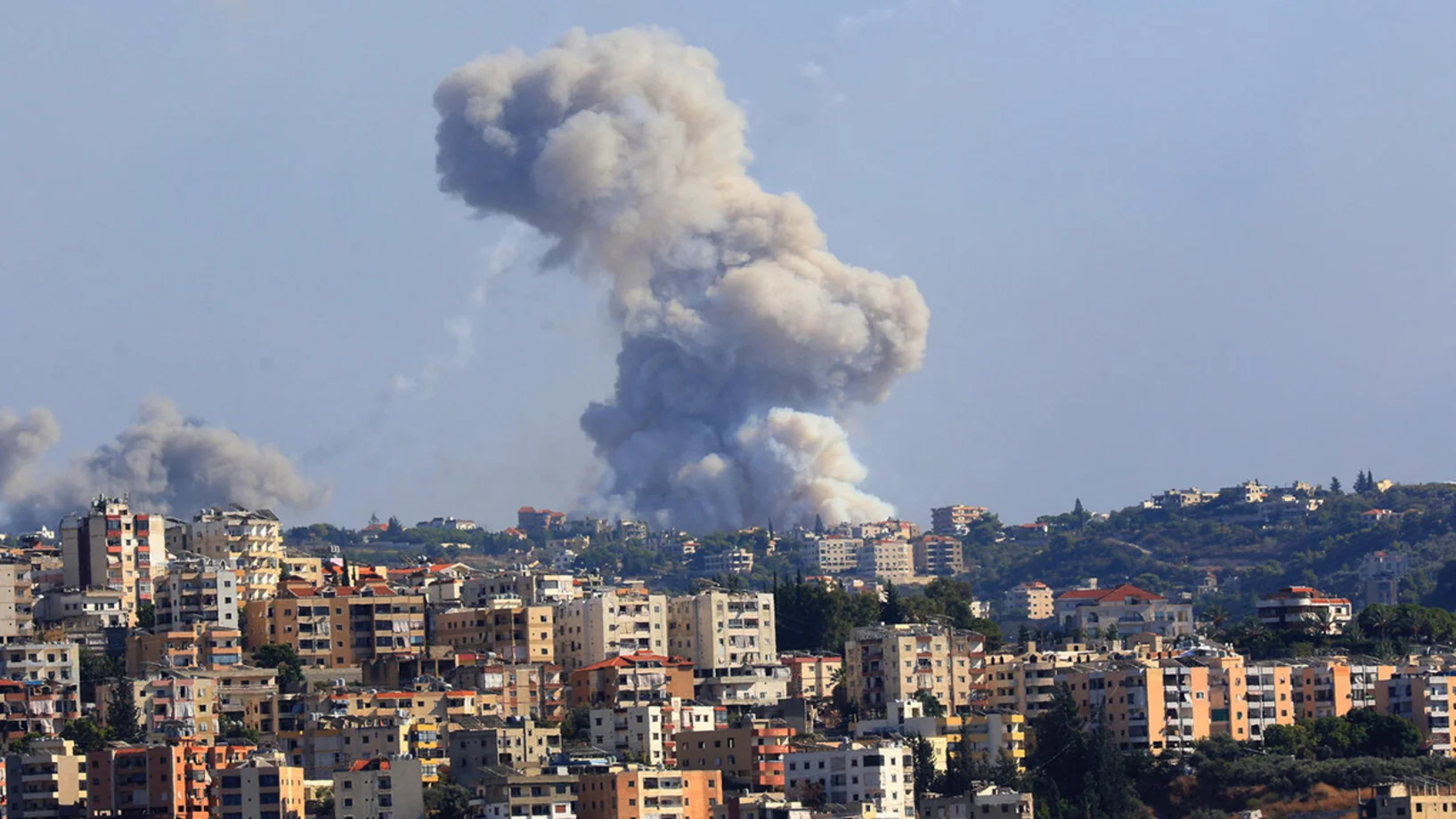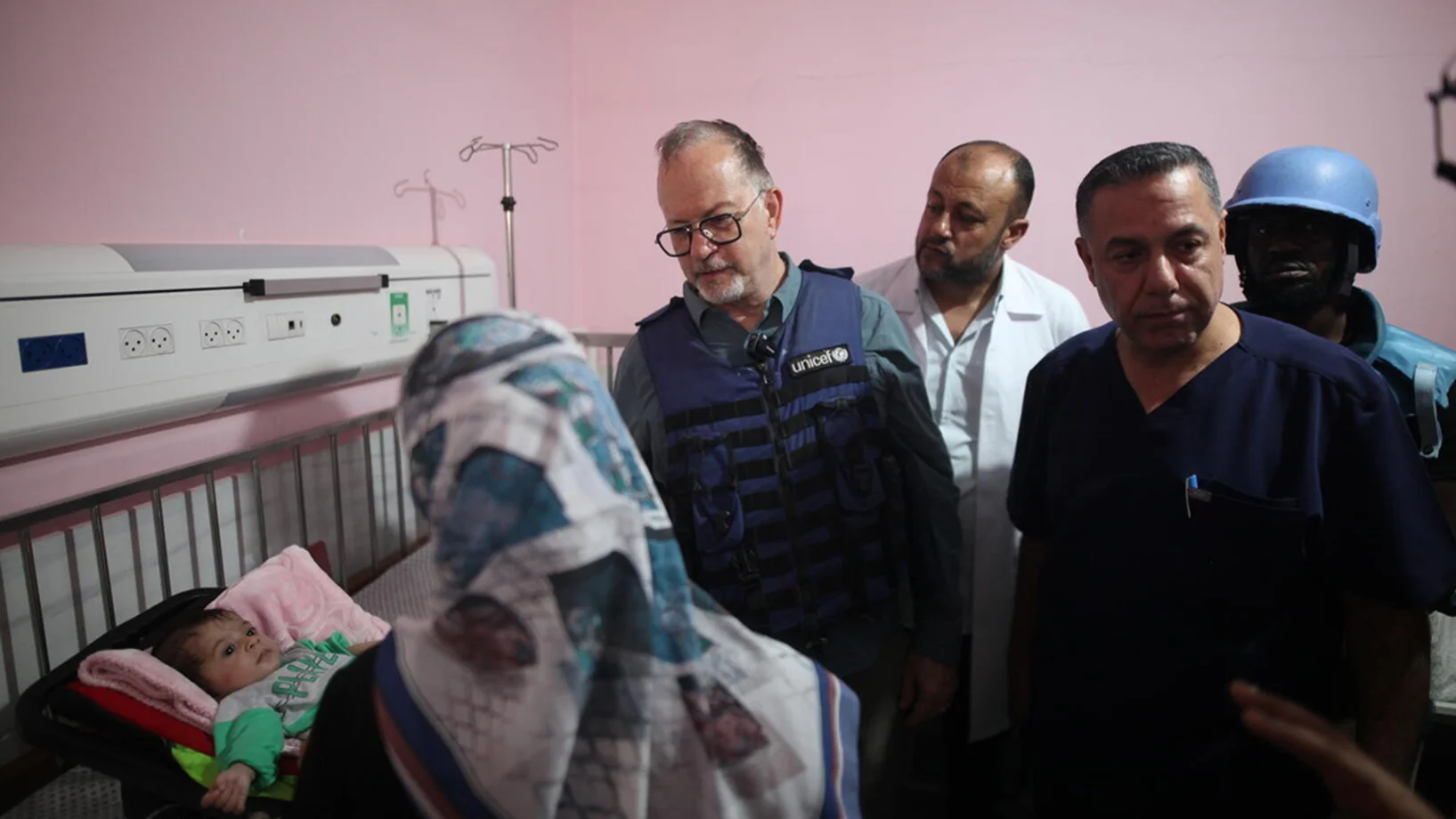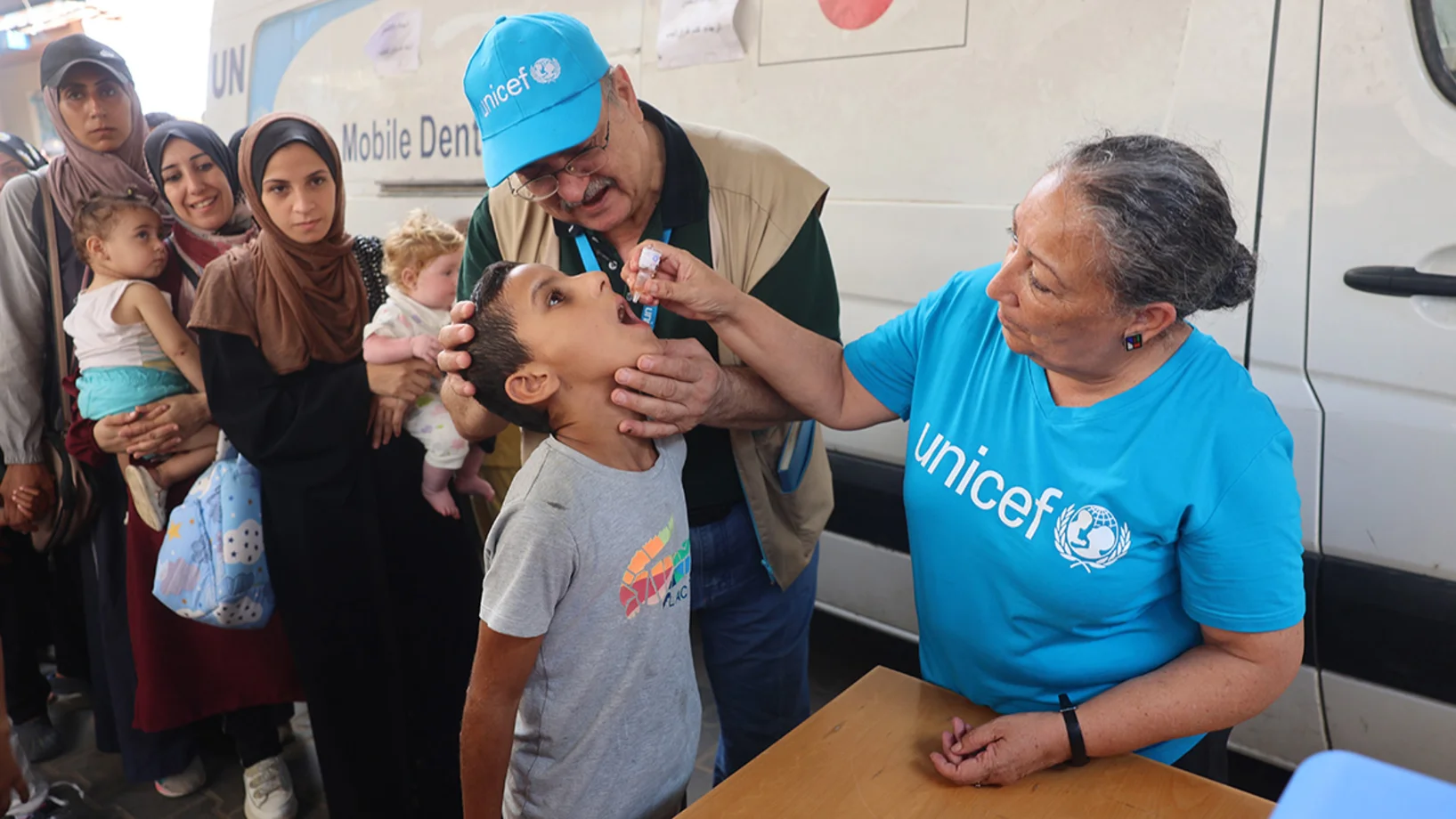War brings suffering, first and foremost to children. Children need peace – in Israel, Palestine, Lebanon and across the globe. UNICEF is doing everything it can to secure it. After a year of escalation in the Middle East, UNICEF continues to demand an immediate ceasefire, the release of the Israeli hostages and an end to the violence on all sides.
The situation
Since the devastating terror attacks on Israel by Hamas on October 7, 2023, all the children there are paying the highest price for the continued violence, although they bear none of the responsibility. A new level of escalation in the Middle East is now also hitting Lebanon’s civilian population hard. Attacks and air strikes are forcing one million people – including 300,000 children – to leave their homes, and the number of internally displaced persons and civilian casualties is rising daily.
The situation continues to be precarious, particularly in Gaza. Hundreds of thousands of families have been forced to leave their homes and are now internally displaced – they cannot leave Gaza, as the border checkpoints are closed. They are seeking shelter in an area of around 47 square kilometers and are in fear of their lives.
There had been no cases of polio (infantile paralysis) in Gaza for at least 25 years. In July, the virus was recorded in wastewater samples. The highly infectious disease can have fatal consequences, particularly for children. So far, one case has been confirmed in an eleven-month-old baby – the risk of further infection is high. Unless swift action is taken, this could not only have devastating consequences for the region, but also set back by decades the global efforts to eradicate polio.
UNICEF and local partners therefore launched a vaccine campaign to protect children against polio on September 1, 2024. The first phase reached 189,000 girls and boys under ten years of age – a ceasefire was agreed for the purpose. It is essential for this to be prolonged. Because every child needs two rounds of immunization to be protected from the virus. Despite the complex challenges on the ground, the second round of the vaccination campaign was successfully carried out between October 14 and 16, 2024. As a result, 181,429 children received the vaccination – more than originally planned. The spread of the virus in Gaza or even worldwide can only be prevented by a coverage rate of at least 90 percent.
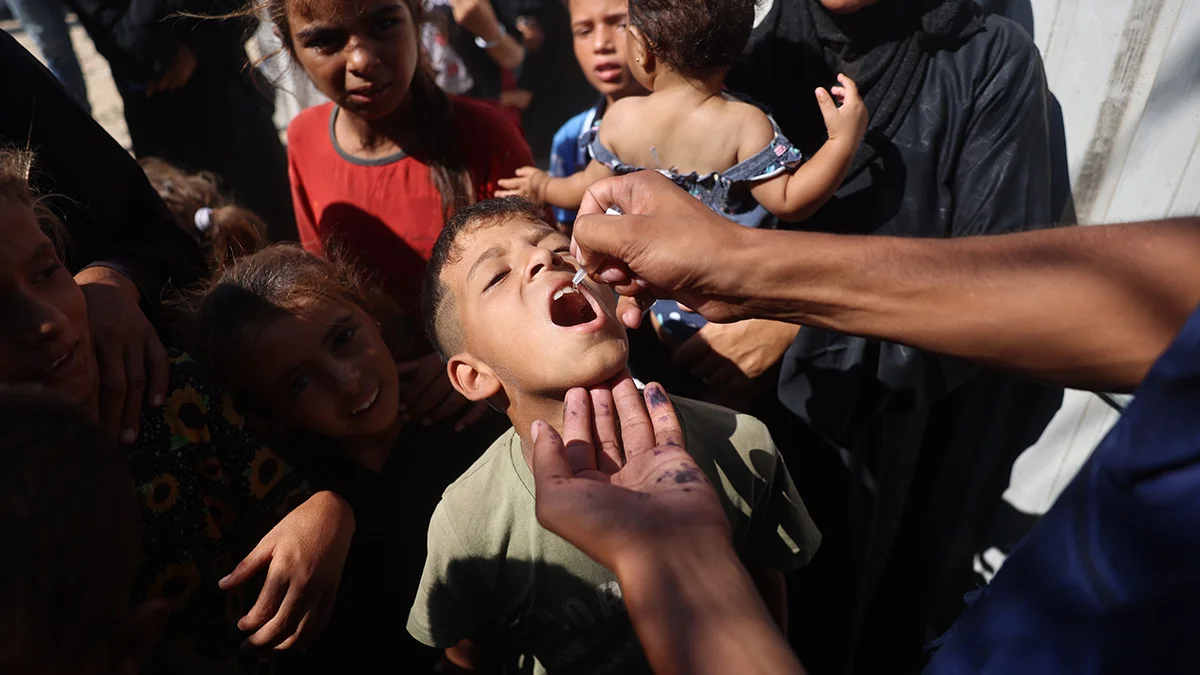
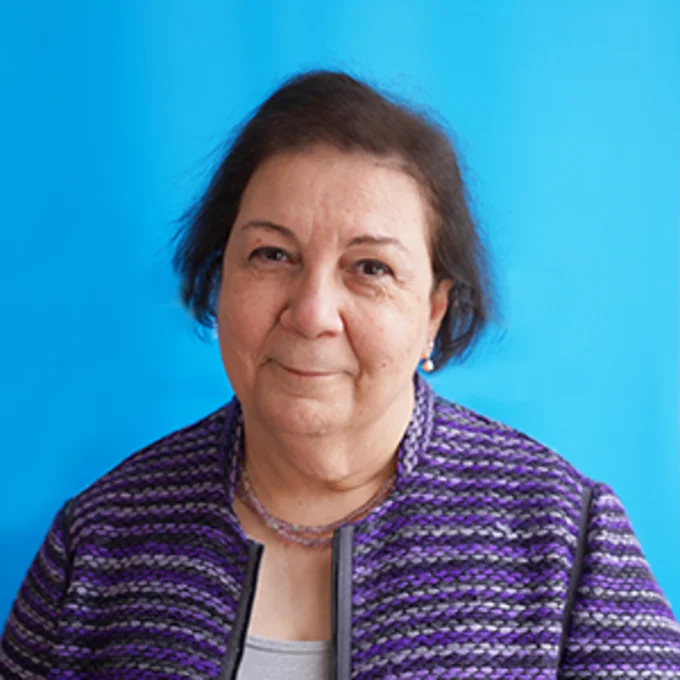
“What children truly need is peace and security, the opportunity for a life lived in dignity and free from deprivation and fear. That starts with de-escalation, a lasting political solution, and the promise of a brighter future.”
The situation for children in Gaza is still catastrophic. Only 56 percent of the original emergency supplies have crossed the border since April 2024. All supply routes have been interrupted and the people of Gaza lack not only essential food, but also clean drinking water and electricity.
After a year of conflict, Gaza has suffered enormous damage. Many buildings lie in ruins. The air strikes and bombings in the conflict area have destroyed important infrastructure, including hospitals and schools. There is almost no way to treat children’s injuries. The hospitals are overflowing, have no fuel for emergency generators and are running out of medical supplies.
Meet Shaima, 5, who lives in Gaza:
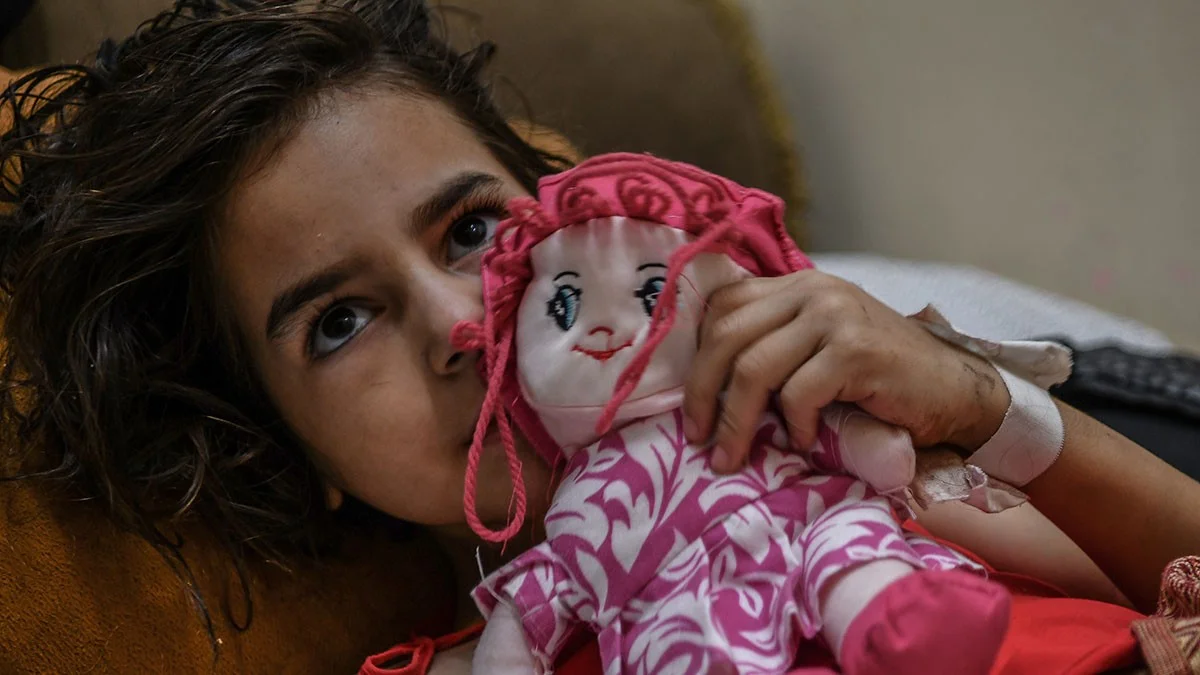
“I was at home with my family. We children were playing a card game. My father had just made a fire outside and my mother wanted to cook pasta. Suddenly, bombs fell on the neighbor’s house and a piece of burning metal hit me. I looked down at my hand, but it was cut off at the elbow. My father stopped a passing car to take me to the hospital. But there were bombs falling in the street and I lost my leg. I wish I could have my hand and my leg back so that I could play with other children again.” This is how five-year-old Shaima from Gaza City describes the most horrifying hours of her young life. Now she wants to become a journalist so that she can tell the world about attacks on children in Gaza.
We are currently receiving many queries about the situation of the children in the Middle East and the work we are doing there. You can find the answers here:
UNICEF condemns the violence in the strongest possible terms and is working to ensure the protection of all children. UNICEF appeals to all parties to comply with international humanitarian law and therefore calls for:
- An immediate ceasefire and end to the violence;
- The immediate and unconditional release of all hostages;
- The opening of all border crossings to Gaza and safe, permanent and unrestricted access for humanitarian aid, including water, food, medical supplies and fuel;
- Respect for and protection of the civilian infrastructure such as housing, electricity, water, healthcare and sanitary facilities;
- The provision of medical care to prevent the outbreak of disease and ensure proper care for the sick and wounded;
- In urgent cases, the evacuation of patients from Gaza or the provision of important healthcare services on site.
Before the latest outbreak of violence in October 2023, some 2.1 million people in Gaza and the West Bank, including 1.1 million children, depended on humanitarian aid. UNICEF has been working throughout Palestine for many years and is dedicated to providing access to services and protection for all children.
During the current crisis, UNICEF staff have responded to the urgent needs of the children in all of Gaza, but access is very dangerous and full of challenges. UNICEF staff are continuing their efforts in the accessible parts of Gaza to provide humanitarian aid to children, e.g. clean drinking water, medical care and psychosocial support.
UNICEF has been active in Israel since 2009 through the Israeli Fund for UNICEF. This is a national UNICEF committee, comparable to the Committee for UNICEF Switzerland and Liechtenstein. In high-income countries such as Israel, Switzerland and Liechtenstein, the state itself takes care of the program work done or supported by UNICEF in low-income countries. Such countries therefore do not mandate UNICEF to develop and implement programs for children. The work of the national committees focuses on raising funds and providing support in implementing the Convention on the Rights of the Child at the political level rather than at a program level. This is why UNICEF is not calling for donations for children living in Israel.
How your donation helps
Since the start of the horrific conflict, UNICEF has been on the ground in the Gaza Strip, working around the clock despite the difficult situation, to provide urgently needed humanitarian aid to children and their families. We are working to provide children and families in Gaza with:
- Nutrition: Distribution of provisions and care through therapeutic food
- Health: Medical care and distribution of medical supplies and vaccine campaigns
- Water, sanitation and hygiene: Provision of safe drinking water, sanitary facilities and hygiene items
- Child protection: Establishment of child friendly spaces and psychosocial care
UNICEF has been operating in Lebanon for more than 76 years. In view of the current escalation, we are further reinforcing our relief efforts. The focus is on providing and delivering food, water and essential emergency supplies such as mattresses and hygiene sets for the displaced families – particularly those in camps.
100 tonnes of emergency medical supplies have already been procured and delivered to medical facilities, which are suffering from major shortages.
Childhood needs peace. Before, during, and after the ceasefire. UNICEF stands in solidarity with the children affected and their families. We won't stop. For every child.
